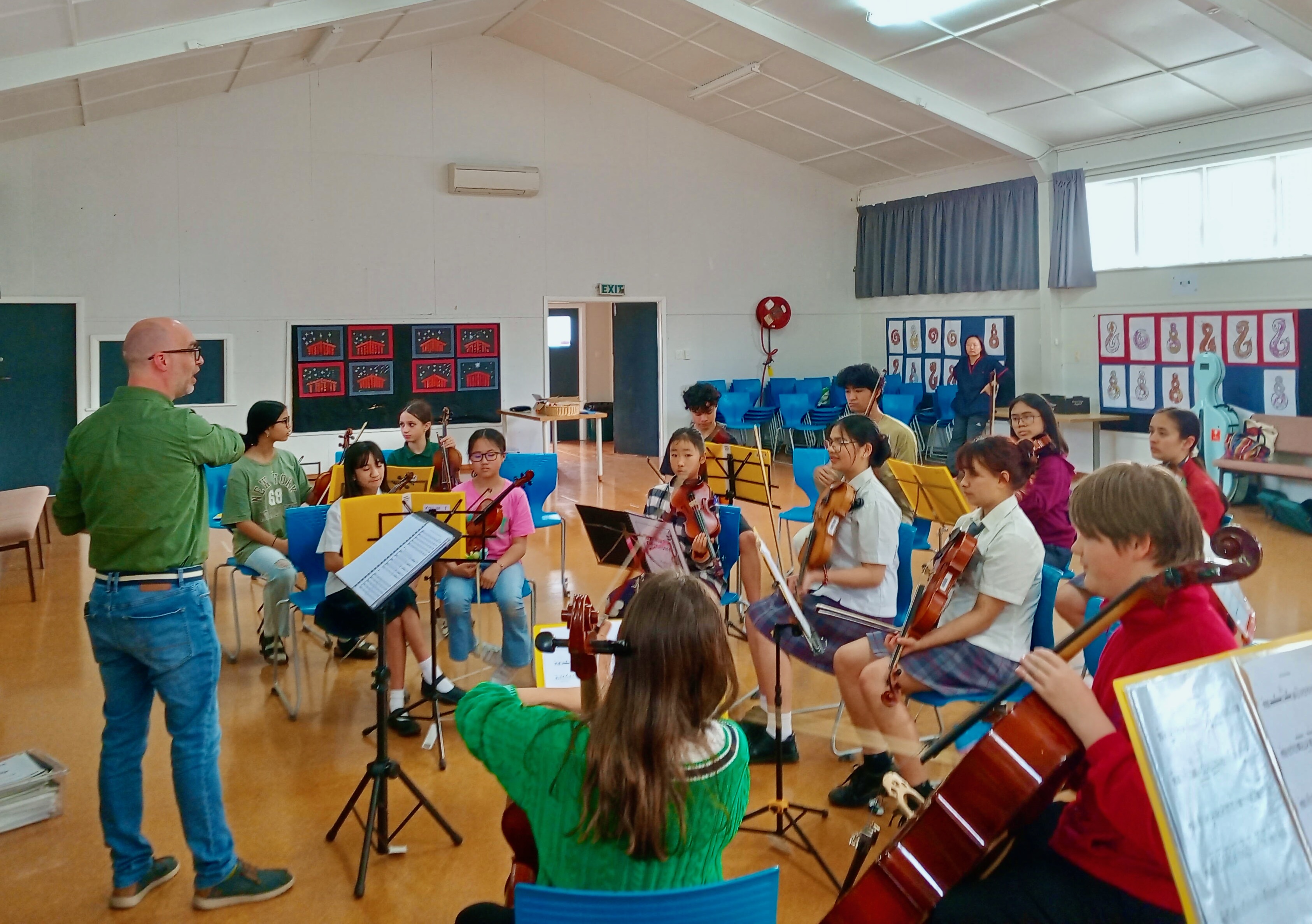Ahead of the performance of his 2024 Commission for Orchestra and Sistema Youth Orchestra, we spoke to Keith Moss about his new work, A Kalahari Eclogue, working with Arohanui Strings, and the inspiration behind this composition.
Can you tell us about the inspiration behind your work A Kalahari Eclogue?
I set out to share something with the audience that drew on elements from my birth country. At the same time, I needed to write parts for Arohanui Strings where they were folded into the body of the orchestra, had their own independent voice, and hope that they leave feeling like they were part of a big sound. The inspiration for the piece relied on these two elements and bringing them together. Many of my works don’t have titles and use the more traditional string quartet no.1 etc. so when I do use a title, the piece then really is about something, or something that I am attempting to illustrate. Two elements that are at the forefront of African music are cyclical motives, and particularly in South Africa, that no two adjacent musicians are to play/clap the same rhythm. That can be quite exciting for a composer to use that idea in an orchestral setting. Finally, in my proposal for the commission, I wanted to illustrate a landscape that is quite different from what you would find in New Zealand. When I put all these ideas together, I ended up with a piece that illustrates (or I hope it does in some impressionistic kind of way) the Kalahari desert and also why I called it an eclogue, that is a poem which employs themes of nature and pastoral ideas.
How has it been working with the kids from Arohanui Strings?
It has been delightful. I’ve visited three times, to three separate locations, and got to meet the string students at a very early stage. In fact, I was able to hear them play on the first occasion before I began writing, and they were able to give me a good sense of what they are capable of. That is to say, they are remarkably talented and play very advanced music. On the third visit, I was able to hear how far they were in the rehearsal process, and I’m already very excited to hear the performance.
What do you love most about composing?
Some of my motivation is probably a little selfish in that, I still find it fascinating to write notes on a page that eventuate into a piece. What I mean by selfish, is that I am the author of those notes, the order in which they appear to form melodies, the harmonies I dictate and the rhythms I choose. The other half of the joy of writing is less self facing, and it is when I get to work with the musicians on performing the work. The camaraderie of bringing lifeless notes on paper into being with thinking, feeling musicians, is where the magic happens. Until then, the writing of a new piece is just setting up the trick, the joy in that is knowing beforehand how it ends. Giving your music over to someone else to perform is also exciting, because every individual has their own approach that results in something different every time a piece is played.
What can we expect at the performance on 9 November?
I think the audience will hear something that is quite familiar to them, but I hope that I have woven the parts together in a way that is unexpected and is a sound world that is unfamiliar, and so they might find some curiosity in what happens next? Everyone’s perception is different, that is the delight of an audience, but I hope they get a sense of the desert, especially at night when it is cold and quiet. One of the magnificent features of this landscape is the arrival of seasonal rain, that comes in swiftly and with awesome force. For a season, everything that lives in this landscape responds to that, however the work ends in much the same way as the desert returns to its arid way of being. Do listen out for the "Piet-my-vrou”, a red chested cuckoo that makes an appearance from time to time.
A Kalahari Eclogue will be featured in Orchestra Wellington's 'The Jazz Age' concert at 7:30pm on Saturday 9 November.

Keith Moss directing students of Arohanui Strings
